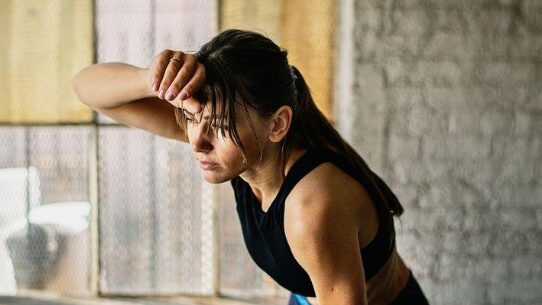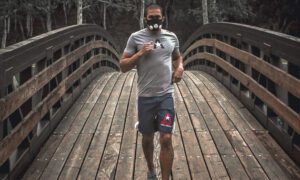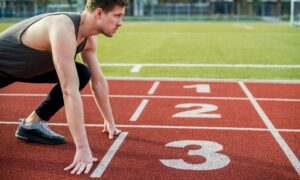Sports bring people together. It doesn’t matter where someone is from or what language they speak. But for refugee athletes, playing sports is not easy. They face many problems that make it hard to train, compete, and succeed.
In this post, we will look at the biggest challenges refugee athletes deal with and how they try to overcome them.
1. Lack of Proper Training Facilities
Athletes need good places to train. They need tracks, fields, gyms, and coaches. But many refugee athletes live in camps or crowded areas where there are no sports facilities.
Without the right equipment or space, it is hard to get better at their sport. Some train on dirt fields or use makeshift weights to stay in shape.
2. Financial Struggles
Playing sports costs money. Athletes need shoes, uniforms, and gear. They may also need to pay for travel, competitions, and coaching. Refugee athletes often don’t have enough money for these things.
Many refugees struggle to find work. They may live in countries where they are not allowed to get jobs. Without money, it is hard to focus on training.
3. Citizenship and Legal Issues
To compete at the highest level, athletes usually need citizenship or legal documents. Many refugee athletes have lost their passports or cannot get new ones.
Some competitions do not allow athletes without a country to represent. Others may make it difficult for refugees to join teams.
There are special programs, like the Refugee Olympic Team, that help athletes without a country compete. But the process is still hard.
4. Discrimination and Exclusion
Refugees often face discrimination. Some people see them as outsiders and do not want them on teams.
Coaches may not pick them for games. Other athletes may not welcome them. This can make refugee athletes feel lonely and unwanted.
Some athletes prove themselves by working harder than everyone else. But it is still tough when people judge them unfairly.
5. Mental and Emotional Challenges
Being a refugee is hard. Many have left their homes because of war, violence, or danger. They may have lost family members or friends.
These painful experiences affect mental health. It can be difficult to focus on training when someone is dealing with fear, sadness, or stress.
Sports can help with healing, but the journey is not easy. Refugee athletes often need support from coaches, teammates, and mental health professionals.
6. Language Barriers
Communication is key in sports. Athletes need to understand their coaches and teammates. But refugee athletes often move to new countries where they do not speak the language.
This makes it difficult to learn new techniques, follow instructions, or even make friends on the team.
Some refugee athletes take language classes. Others learn by listening and practicing with teammates. It takes time, but many work hard to overcome this challenge.
7. Separation from Family
Many refugee athletes are forced to leave their families behind. This is one of the hardest challenges they face.
Without their loved ones, they may feel alone and lack emotional support. Family members may also struggle, and athletes worry about their safety.
Some use sports as motivation, hoping to make their families proud. But the emotional weight can be difficult to carry.
8. Travel and Visa Restrictions
Competing in sports often requires travel. But refugee athletes may not have the right papers to move freely.
Getting a visa can be difficult and expensive. Some countries do not allow refugees to enter. This makes it hard for athletes to go to competitions and prove their talent.
There are programs that help refugee athletes with visas, but not all get the chance they need.
9. Limited Coaching and Support
Great athletes need great coaches. But refugee athletes often do not have access to experienced trainers.
They may rely on online videos or train alone. Without proper guidance, improving can be slow.
Organizations are working to provide refugee athletes with coaching. But many still struggle to get the expert help they need.
10. Pressure and Expectations
When a refugee athlete succeeds, they become an inspiration. People look up to them and expect them to win.
While this can be motivating, it can also bring a lot of pressure. Some athletes feel like they must succeed for their families, their communities, or all refugees.
Carrying this weight can be stressful. Athletes must learn to balance expectations and focus on their personal goals.
How Some Refugee Athletes Overcome These Challenges
Despite these difficulties, many refugee athletes find ways to succeed. They work hard, stay positive, and take advantage of opportunities when they arise.
- Training with what they have – Even with no proper facilities, some train in open fields, parks, or small spaces.
- Getting support from organizations – Groups like the Refugee Olympic Team help athletes get coaching, funding, and legal support.
- Learning the language – Many athletes take language lessons or learn from teammates to communicate better.
- Using sports as motivation – Instead of giving up, some refugee athletes use their struggles as fuel to push harder.
To Wrap It Up
Refugee athletes face many challenges, from financial struggles to discrimination. But their passion for sports keeps them going.
With the right support, refugee athletes can achieve great things. They prove that talent and hard work matter more than where someone comes from.
By supporting refugee athletes, we help create a world where everyone gets a fair chance to play, compete, and succeed, and Sportconn offers just that and more.
Sportconn is a sports social community that connects athletes, sports professionals, brands, or exercise lovers like you to achieve your individual goals. Everyone is hurrying there, don’t be left out. Join us now!

































